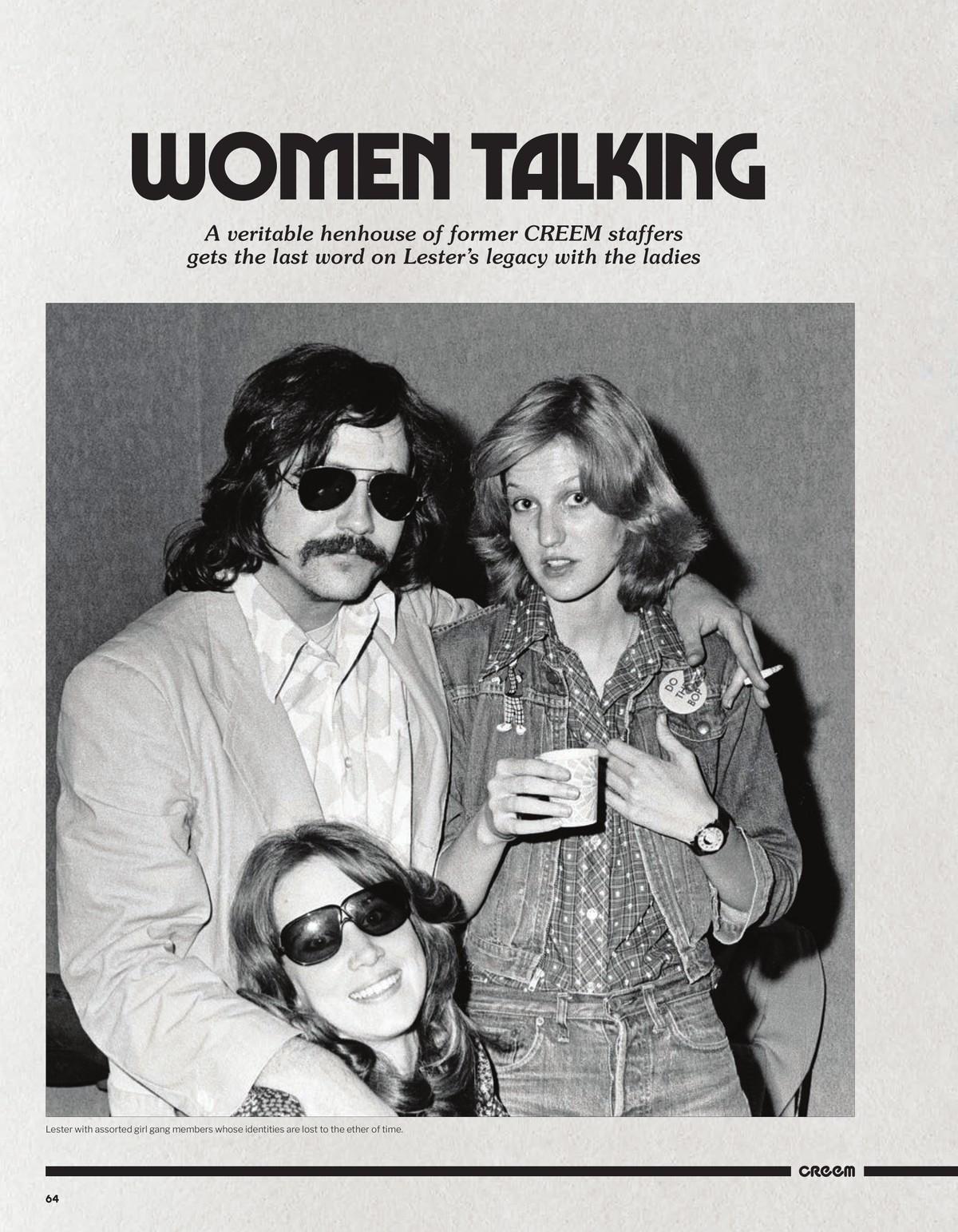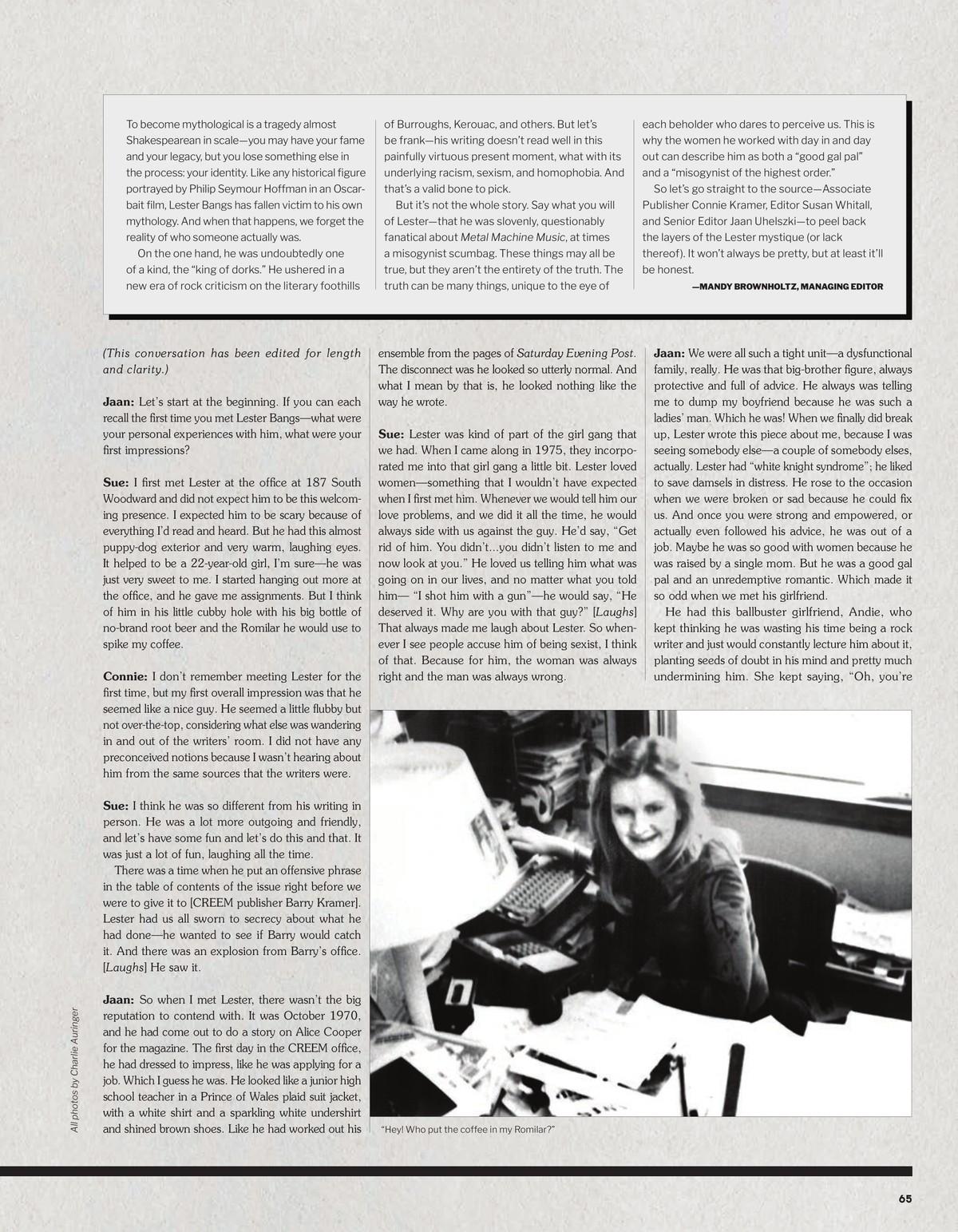WOMEN TALKING
A veritable henhouse of former CREEM staffers gets the last word on Lester’s legacy with the ladies.
December 1, 2023


Loading...

A veritable henhouse of former CREEM staffers gets the last word on Lester’s legacy with the ladies.


Loading...